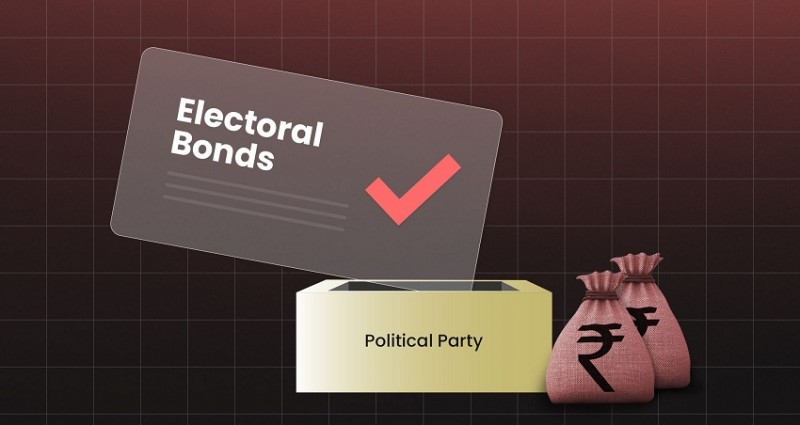
Electoral bonds emerged onto India's political landscape in 2017 as a novel approach to political funding. These instruments allowed individuals and corporate entities to contribute significant sums of money to political parties while maintaining anonymity. Under this scheme, donors purchased bonds from the State Bank of India (SBI) in fixed denominations and transferred them to their preferred political entities, without disclosing their identities to anyone, including the Election Commission of India (ECI).
However, the electoral bond system underwent a seismic shift in mid-February, when the Supreme Court annulled the seven-year-old mechanism just weeks ahead of the scheduled Lok Sabha elections in April-May. This landmark decision upended the existing framework, raising questions about the future of political funding in the country.
The Electoral Bond Scheme, prior to its annulment, represented a departure from conventional methods of political financing. It provided a veil of secrecy around donors' identities, fostering a system where financial contributions could flow discreetly to political parties. Despite its intended purpose of promoting transparency by channeling donations through formal banking channels, critics voiced concerns about the opacity surrounding the origins of these funds.
The release of official data by the Election Commission of India (ECI) on March 15 shed light on the significant role played by major corporations in political funding over the past five years under the now-defunct system. Electoral bonds, essentially promissory notes issued in bearer form, did not require any disclosure of ownership information. This lack of transparency prompted calls for reforms to ensure accountability and prevent potential misuse of these instruments.
Here are key aspects to understand about electoral bonds:
Anonymity: Electoral bonds provided anonymity to donors, shielding their identities from public disclosure. This feature aimed to safeguard the integrity of the political funding process by eliminating biases and external influences.
Legal Framework: The introduction of electoral bonds was enshrined in the Finance Act of 2017. Despite claims by the government regarding enhanced transparency, critics raised concerns about the opacity surrounding the sourcing of these funds.
Eligible Parties: Only political parties registered under Section 29A of the Representation of the People Act, 1951, and securing at least one percent of the votes polled in the last General Election were eligible to receive electoral bonds.
Encashment Process: Political parties were required to encash electoral bonds within a specified timeframe through designated bank accounts. Failure to do so within 15 days resulted in the donation being redirected to the Prime Minister's Relief Fund.
Denominations: Electoral bonds were available in various denominations, ranging from Rs 1,000 to Rs 1 crore, providing flexibility to donors in their contribution amounts.
Purchase Periods: Donors could purchase electoral bonds during designated periods announced by the government, typically occurring four times a year, with additional availability during general election years.
Validity: Electoral bonds had a validity period of 15 days from the date of issuance, adding a time constraint to their utilization.
Transparency Concerns: Despite government assertions of promoting transparency, the lack of disclosure regarding donor identities raised concerns about potential corruption and undue influence in the political process.
Impact on Political Funding: The advent of electoral bonds significantly altered the landscape of political financing, providing a legitimate avenue for contributions while preserving donor anonymity.
Future of Political Funding: With the annulment of the electoral bond scheme, questions arise about the future mechanisms of political funding. While parties retain the ability to collect donations directly from individuals and corporations, concerns persist regarding the potential for circumventing transparency measures.
In conclusion, the annulment of the electoral bond scheme marks a pivotal moment in India's political financing landscape. As discussions on reforms and alternative mechanisms continue, the imperative remains to uphold transparency, accountability, and integrity in the funding of political activities.
Supreme Court Orders Full Disclosure of Electoral Bond Details by SBI
Uddhav Thackeray Accuses BJP of Corruption Through Electoral Bonds Scheme"
Supreme Court Approves Election Commission's Request to Publish Electoral Bond Data on Website